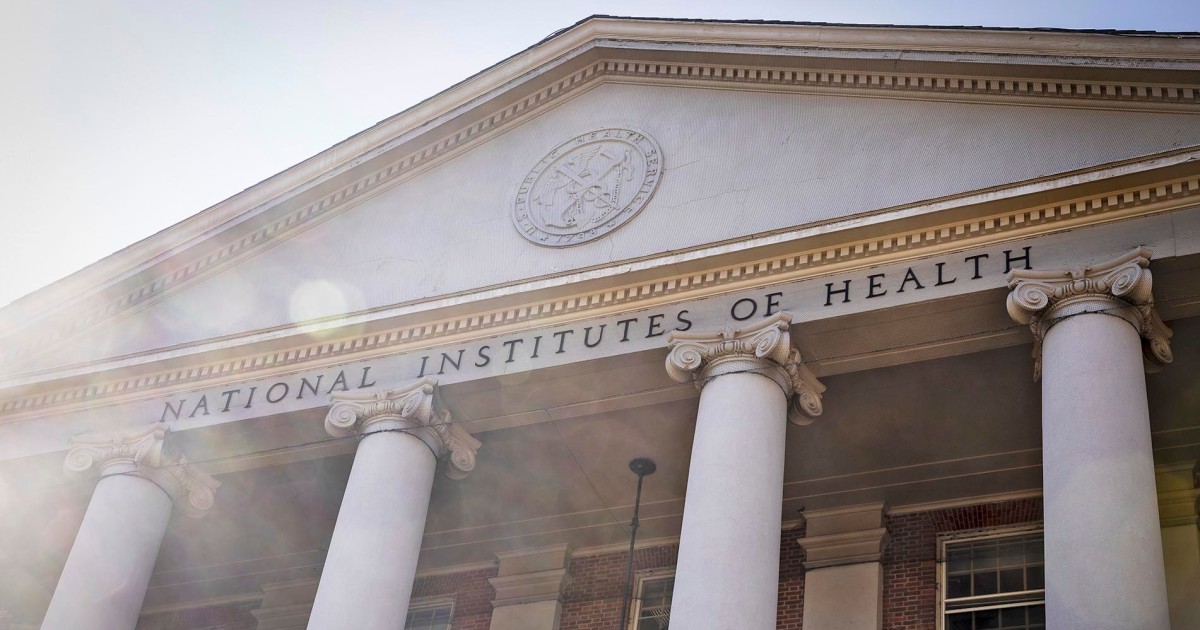
The American Civil Liberties Union filed a lawsuit Wednesday alleging that the National Institutes of Health has conducted an “ongoing ideological purge of critical research projects” that violates federal law and is unconstitutional. The lawsuit, filed in Massachusetts district court on behalf of four researchers and three unions with members who rely on NIH funding, says that the federal science agency “abruptly cancelled” hundreds of research projects “without scientifically-valid explanation or cause.” The lawsuit says NIH has justified its cancellations with “ideological purity directives” about research related to diversity, equity and inclusion (DEI), vaccine hesitancy and gender identity, among other topics.
“The new arbitrary regime is not codified in any law or policy,” the lawsuit says, adding that NIH has “failed to develop any guidelines, definitions or explanations” that explain “the parameters of the agency’s prohibitions against research with some connection to DEI, gender, and other topics that fail Defendants’ ideological conformity screen.” The new lawsuit lists the NIH; its director, Jay Bhattacharya; the U.S.

Department of Human and Health Services; and its director, Robert F. Kennedy Jr., as defendants.
Both federal agencies said they would not comment on pending litigation. The Center for Science in the Public Interest and Protect Democracy Project are working with the ACLU on the lawsuit. It is one of several legal challenges the Trump administration now faces as it attempts to cut research funding, change how it is allocated or reduce academic emphasis on diversity, among other issues.
After several legal complaints, a Massachusetts judge in February halted an NIH effort to limit its funding for indirect costs, which would have dramatically slashed how much funding the federal government provides to research agencies for things like equipment, maintenance, utilities and support staff. Other lawsuits have challenged funding freezes across the federal government and the administration’s ban on DEI programs . “Our case is specifically addressing NIH’s lawless grant terminations and their upending of the grant review process for applicants,” Olga Akselrod, senior counsel at the ACLU Racial Justice Program, said in a phone interview.
“These sweeping actions have disrupted hundreds of research grants, derailed really crucial research and are upending the careers of the most promising scientists in the United States with really no clear rationale.” The lawsuit says at least 678 research projects have been terminated by NIH, including work on breast cancer, Alzheimer’s disease and HIV prevention, among other topics. The lawsuit says the canceled grants amounted to more than $2.
4 billion. Of that total, about $1.3 billion had already been spent.
Another $1.1 billion was expected to be distributed to grantees by NIH before it was revoked. “NIH’s cancelling of research midstream effectively discards an enormous amount of money in investments and years of work dedicated to answering some of the most pressing biomedical questions of our time,” Akselrod said.
“ You can’t just turn research on and off like a faucet.” The plaintiff researchers include Brittany Charlton, a professor at Harvard Medical School, who founded the LGBTQ Health Center of Excellence at Harvard’s T.H.
Chan School of Public Health. Charlton, whose research focuses on LGBTQ health inequities in cancer and reproductive health, among other topics, has had five grants terminated by NIH since February, according to the lawsuit. Another plaintiff, Katie Edwards, had six grants canceled since February, the lawsuit says.
Edwards, a professor at the University of Michigan School of Social Work, has focused on research about preventing sexual violence in minority communities, including among Indigenous youth and LGBTQ+ communities..















